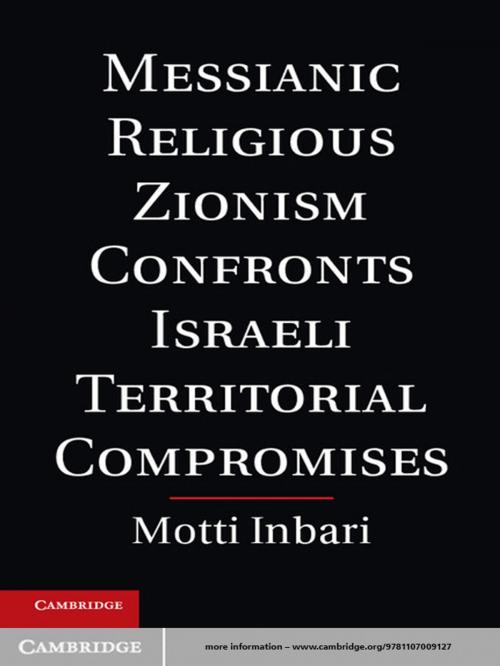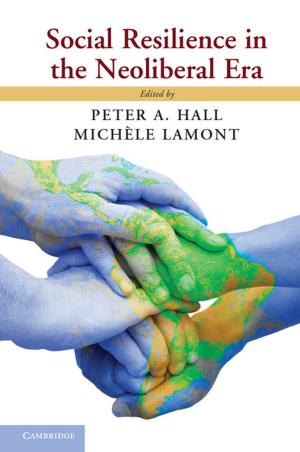Messianic Religious Zionism Confronts Israeli Territorial Compromises
Nonfiction, History, Middle East, Religion & Spirituality| Author: | Motti Inbari | ISBN: | 9781139539876 |
| Publisher: | Cambridge University Press | Publication: | August 27, 2012 |
| Imprint: | Cambridge University Press | Language: | English |
| Author: | Motti Inbari |
| ISBN: | 9781139539876 |
| Publisher: | Cambridge University Press |
| Publication: | August 27, 2012 |
| Imprint: | Cambridge University Press |
| Language: | English |
The Six Day War in 1967 profoundly influenced how an increasing number of religious Zionists saw Israeli victory as the manifestation of God's desire to redeem God's people. Thousands of religious Israelis joined the Gush Emunim movement in 1974 to create settlements in territories occupied in the war. However, over time, the Israeli government decided to return territory to Palestinian or Arab control. This was perceived among religious Zionist circles as a violation of God's order. The peak of this process came with the Disengagement Plan in 2005, in which Israel demolished all the settlements in the Gaza Strip and four settlements in the West Bank. This process raised difficult theological questions among religious Zionists. This book explores the internal mechanism applied by a group of religious Zionist rabbis in response to their profound disillusionment with the state, reflected in an increase in religious radicalization due to the need to cope with the feelings of religious and messianic failure.
The Six Day War in 1967 profoundly influenced how an increasing number of religious Zionists saw Israeli victory as the manifestation of God's desire to redeem God's people. Thousands of religious Israelis joined the Gush Emunim movement in 1974 to create settlements in territories occupied in the war. However, over time, the Israeli government decided to return territory to Palestinian or Arab control. This was perceived among religious Zionist circles as a violation of God's order. The peak of this process came with the Disengagement Plan in 2005, in which Israel demolished all the settlements in the Gaza Strip and four settlements in the West Bank. This process raised difficult theological questions among religious Zionists. This book explores the internal mechanism applied by a group of religious Zionist rabbis in response to their profound disillusionment with the state, reflected in an increase in religious radicalization due to the need to cope with the feelings of religious and messianic failure.















